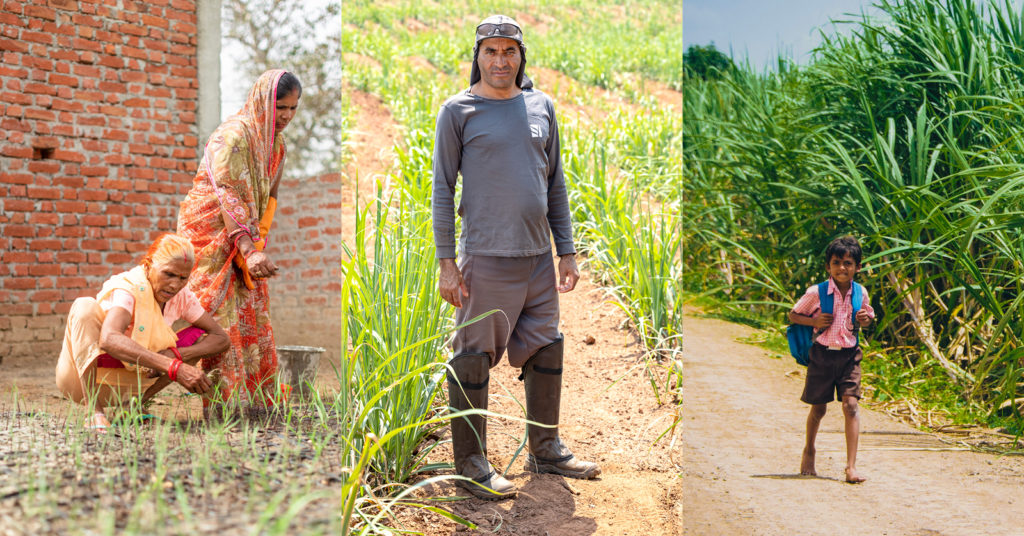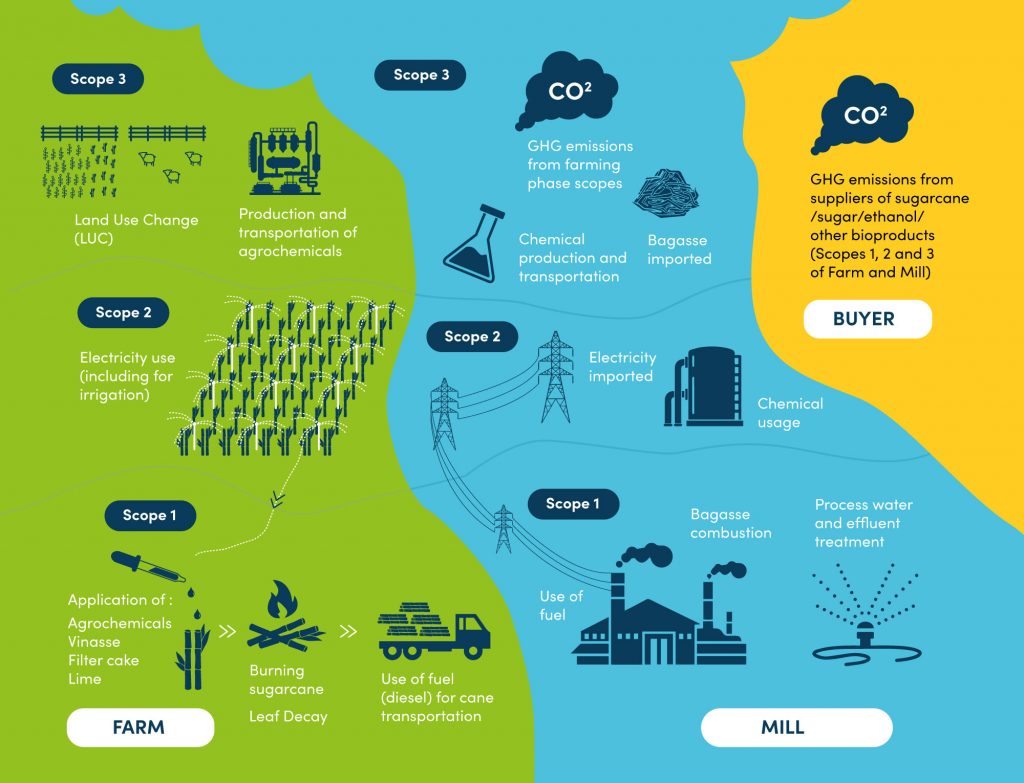6th April 2022
Environmental and human well-being are interconnected and interdependent. That is the theme of this year’s World Health Day; “Our planet, our health”.
According to the WHO, the climate crisis is the most serious threat to health currently faced by humans. In the third part of its report, the IPCC has made it clearer than ever; if we want our planet to remain liveable, we have just three years to reverse the curb of greenhouse gas emissions. If we don’t, the consequences on humans will be disastrous.
In the sugarcane sector, increasing temperatures, diminishing natural resources and environmental damage have already been threatening the health and livelihoods of growers and workers.
We reflect on how ecological degradation impacts the health of some of the most vulnerable in key sugarcane origins, and how everyone in the sector can take action with us.

Rising temperatures: preventing heat stress among sugarcane workers
In recent decades, a pandemic of chronic kidney disease of unknown origin (CKDu) has been clearly identified among agricultural and other heavy labourers, including sugarcane workers. Research suggests that labour conditions which include work in hot conditions without adequate rest or fluids lead to heat stress – a primary cause of the illness. As global temperatures rise, those in already hot climates are the worst affected, increasing the risk for sugarcane workers.
But preventive solutions exist. We have joined forces with La Isla Network, Nicaragua Sugar Estates Limited and the Nicaraguan Sugar Producers Association, to form the Adelante Initiative – a platform that aims to prevent heat stress and CKDu by improving labour practices. For example, we are encouraging the implementation of Water, Rest, Shade and Sanitation programmes, which ensure that workers are adequately hydrated, and are allowed sufficient rest time out of the sun.
This programme has proven efficient, and we have the resources to support more producers and buyers in implementing such practices in their sugarcane supply chains.
Reducing greenhouse gas emissions
In the sugarcane production value chain, the biggest contributor of GHG is sugarcane farming (77% of GHG emissions*). This comes from practices such as the use of machinery, pesticides and fertilisers, burning cane, irrigation and land use change. Processing accounts for 23% of GHG emissions*, the main sources being chemical inputs, treating water and effluents, and burning bagasse.

The first step in reducing GHG emissions is to monitor them. Using the Bonsucro Calculator, our members can track environmental performance, including GHG emissions. The data is invaluable for climate action interventions as they can identify gaps and see exactly which areas need to improve. On a smaller scale, Bonsucro-certified smallholders use their Farm diaries to monitor data on sources of GHG emissions, such as agrochemicals, water for irrigation, and transportation.
The second step is to mitigate impacts. This requires a strong climate change mitigation and adaptation plan, with baseline GHG emissions and reduction targets.
In 2019, a study published in PNAS revealed that global adoption of the Bonsucro Standard would halve GHG emissions in the sector. While universal Bonsucro certification may not be achievable, the data demonstrates the Bonsucro Standard provides a roadmap to decarbonise the sector.
Protecting biodiversity, ecosystems and resources
Humans are part of the natural world, and we rely upon it for our survival. That’s why protecting biodiversity, ecosystems and natural resources isn’t just an environmental act; it’s also integral to human health.
Sugarcane producers can support biodiversity and natural resources by developing the right plans:
- Biodiversity Management Plan, to map biodiversity, ecosystem services and High Conservation Values, address the potential impacts of cane production, and identify mitigation and restoration measures.
- Soil Management Plan, to avoid erosion and maintain and improve soil health. The use of fertilisers should be based on soil or leaf analysis.
- Water Stewardship Plan, to identify water resources and other users, promoting sustainable water use and maximising water efficiency.
- Pest, Disease and Weed Management Plan, to monitor plant health, pests and beneficial organisms, and making appropriate use of agrochemicals to minimise air, soil and water contamination.
All the above plans are required in the Bonsucro Production Standard, and we can support producers in developing and implementing them.
Addressing plastic pollution
Plastic pollution isn’t just a major challenge to climate health. It’s becoming a major human health problem too, especially for those in lower-income countries. In 2019, WWF discovered that people could be the equivalent in plastic of a credit card per week. For the first time in history last month, microplastics were found in human blood.
In recent years, a response to the increasing damage of plastic pollution has been bioplastics. Bioplastics are made from renewable material such as sugarcane, instead of fossil-based petroleum and demand for them is increasing.We are seeing growing demand for sustainable sugarcane bioplastics and we expect this trend to continue
Transitioning to sugarcane bioplastics is positive for the environment – but only if it is effectively recyclable, compostable, or biodegradable, and if sugarcane materials are produced and sourced sustainably. We have also responded to the resolution agreed in Nairobi, Kenya to develop a legally binding international instrument to end plastic pollution. We look forward to sharing our experiences and learnings to support the sector’s development in this field.
The solutions to produce and source sugarcane sustainably are there. We stand ready to support companies along the supply chain – from growers and mills to FMCGs and retailers.
If you’d like to tell us about where you need support, and hear more about how we can help, our team would love to hear from you. Please email us at info@bonsucro.com.
*Source: Bonsucro certification database





